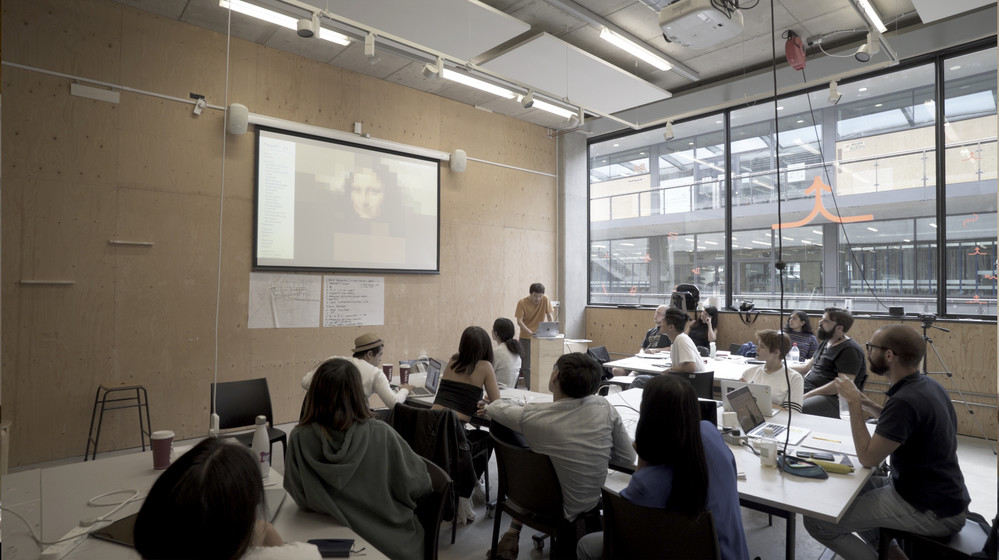What is microteaching?
UAL Arts Temps partners with the academic teams to create these panels. It’s a fantastic way for students to engage and feed into the learning process. It also ensures that all UAL’s academic staff teach in a relevant and engaging way.
What is the process like?
Hi all, thanks for catching up with us. So, Noemi, as chair of the recruitment panels, could you tell me how microteaching feeds into the recruitment process?
Temps: The panels usually last half a day with short breaks between each applicant. We each have a form that we need to fill in and analyse how successful the teaching was and what our favourite part of the session was. It's quite interesting to see how different candidates take on the brief and use different approaches.
Temps: I apply for them because it’s a little bit of extra money that slots in quite easily with my course. As jobs go it’s a good one to do, in my experience Arts Temps and the University really look after the temps. We’re paid reasonably well and if anyone cancels the work at the last minute we still get paid for that hour or so that we lost.
It’s the sort of job that doesn’t need previous work experience too. By being a student you’re already an expert in what they’re asking for.
Noemi: I’d agree with that, some students have asked for me to connect them with candidates afterwards, as the presented themes or tools related to their own practice and they wanted to know more, so it can be a good networking opportunity too. More recently I’ve noticed that students have felt more empowered to have a say in the recruitment process, and so have some influence in staff recruitment. It has become a bit more of a partnership. Some of my student panels also held me to account for aspects of recruitment policies for example in relation to the diversity of applicants. So, students who are more engaged with the university’s strategies have a more direct say in the way the university operates.
Noemi: It enables us to have a fairer recruitment process and gives opportunities for the applicants to shine in areas other than responding to questions from a panel. It offers input from voices other than academics or management. As we also ask for applicants to send in reflections following the microteaching, it gives an opportunity for the applicant to also contextualise their experience of microteaching. All these inputs make our process fairer.


